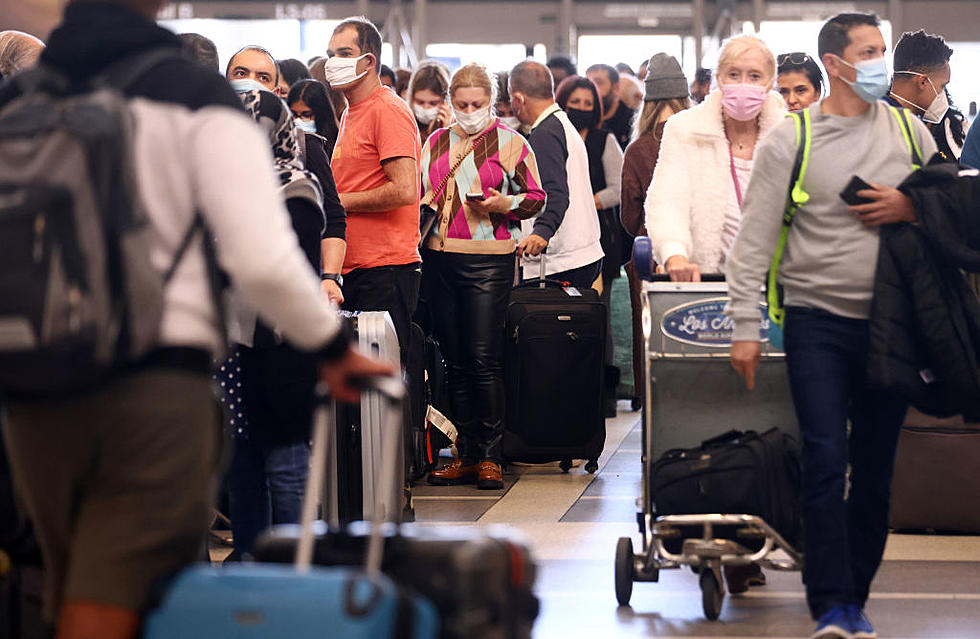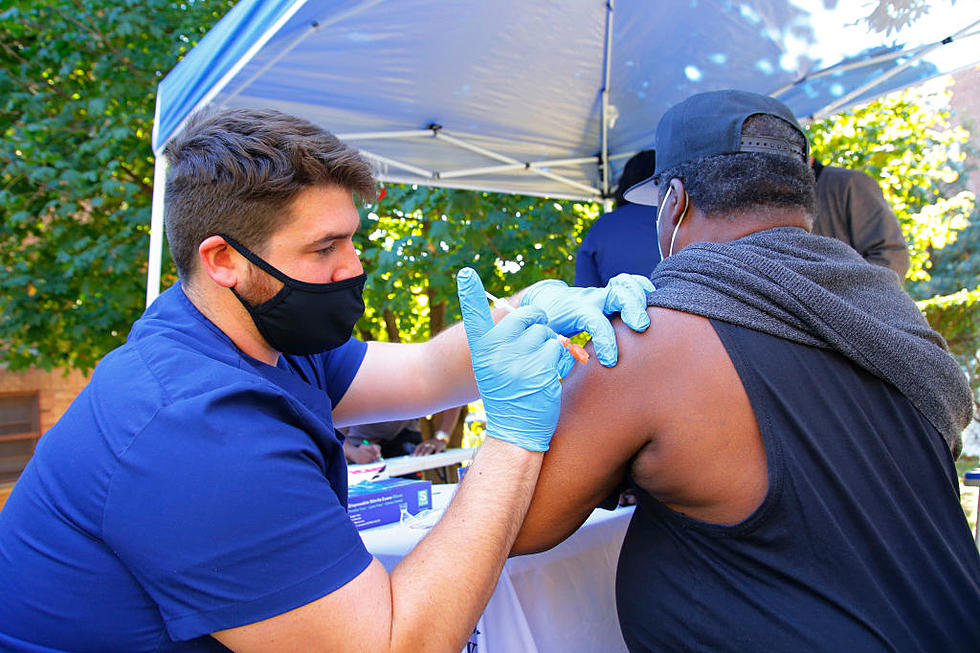
What Is It Like To Get The COVID-19 Antibody Test?
At the Price Chopper in North Utica I was one of the final 25 people Tuesday evening to receive a COVID-19 antibody test. The entire process took less than twenty-five minutes, but that wasn't the case for some.
The tests were being conducted by representatives from the New York State Department of Health. It was a last minute decision brought on by a tip that the tests were being done at the grocery store and I couldn't pass up the chance! Wouldn't you want to know if you've been exposed to the novel coronavirus.
The people conducted the tests were extremely cautious and if you did not have a mask on you would not be tested. Health Department officials were also fully equipped with gloves, mask, sanitary wipes and plenty of Governor Cuomo hand sanitizer.
The first step required you to sit down with a worker and give very basic demographic information. They asked for name, phone number, address and date of birth. After that, you were directed to a line where another workers put your information into a computer and then sent you to the final destination, the line to get the test.
When it was finally my turn, the nurse called me up, took my paper card that was given to me by the other health department officials and she pricked my finger.
The test is designed so that blood droplets will fill 2-3 out of 5 circles at the bottom of the paper test card and sealed. I was "a good bleeder," according to my nurse and she was able to fill all five. Now that the sample is collected, it will be sent to the State's Wadsworth Lab in Albany. I was told my results would be back to me via phone call or text message by Monday or Tuesday.
So what will the results mean? If I have been exposed to the coronavirus it's likely my immune system has developed the antibodies as a defense mechanism against the virus. At the early stage of this particular coronavirus, medical experts don't know enough yet about the antibodies to know if it will prevent future infection. That will only be determined when someone with known antibodies is exposed to the virus again.
When sent the results there will be three potential outcomes.
Reactive: Indicates the antibodies to COVID-19 were present in the blood specimen.
Nonreactive: Indicates antibodies were not present.
Indeterminate: Indicates the test did not produce a clear determination of either reactive or nonreactive.
It takes a total of 3-4 weeks for your body to develop antibodies after infection, but they will last a while once they're established. The State Department of Health advises that people who were infected or believe they were infected should wait until 21 days before getting an antibody test.
So why the tests? Governor Cuomo announced the state testing survey in an effort to gather data in an effort to start to plan the reopening of our economy. If you have antibodies for COVID-19, you also may be eligible to donate plasma so healthcare professionals can work on a treatment or vaccine.
A state worker at the testing site mentioned that they don't know where they're going to be for testing until 8 a.m. in the morning. It's not known where, when or if the State Health Department will be testing next.
KEEP READING: See 25 natural ways to boost your immune system
More From WIBX 950









